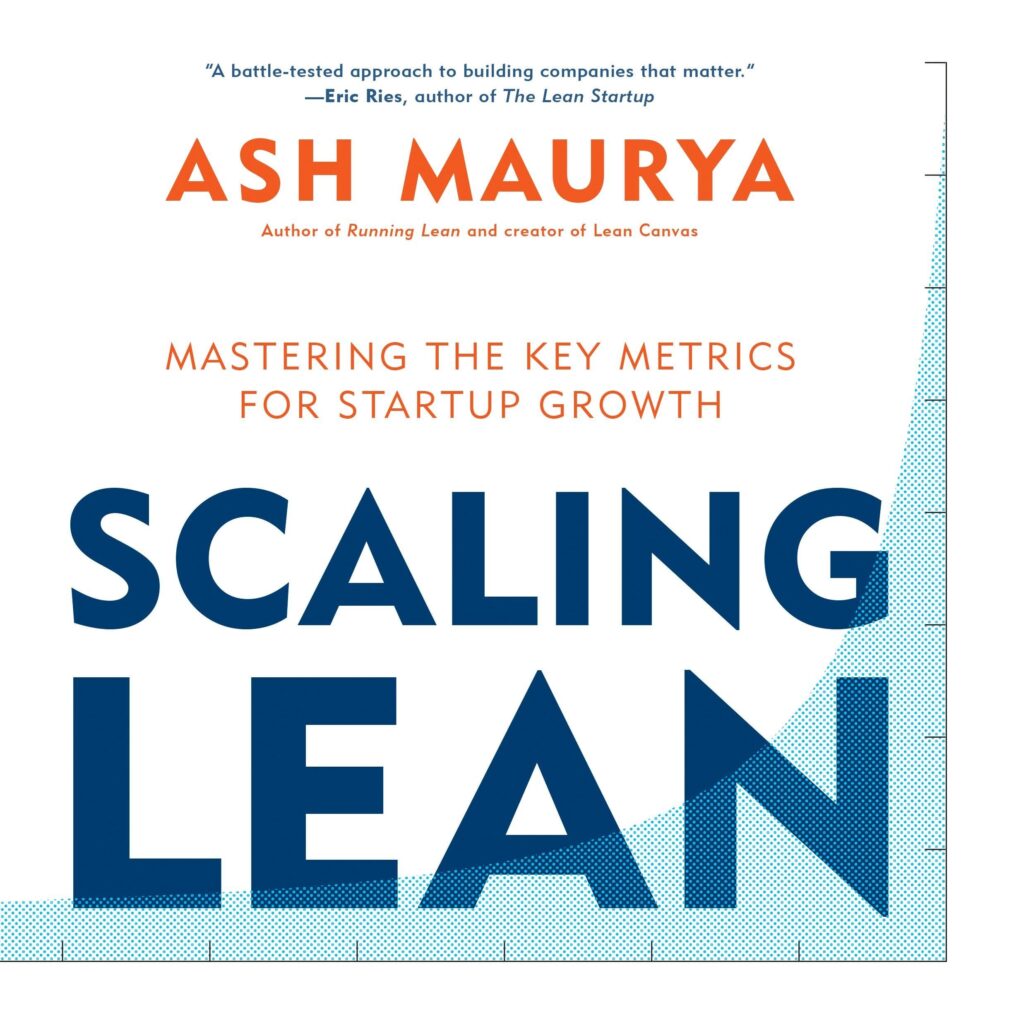Scaling Lean: Mastering the Key Metrics for Startup Growth
Ash Maurya

Is your “big idea” worth pursuing? What if you could test your business model earlier in the process—before you’ve expended valuable time and resources?
You’ve talked to customers. You’ve identified problems that need solving, and maybe even built a minimum viable product. But now there’s a second bridge to cross. How do you tell whether your idea represents a viable business? Do you really have to go through the whole cycle of development, failure, iteration, tweak, repeat?
Scaling Lean offers an invaluable blueprint for modeling startup success. You’ll learn the essential metrics that measure the output of a working business model, give you the pulse of your company, communicate its health to investors, and enable you to make precise interventions when things go wrong. You’ll also learn how to:
· ballpark the viability of a business model using a simple five-minute back-of-the-envelope estimation.
· stop using current revenue as a measure of progress (it forces you to fly blind and, often, to overpromise to your shareholders) and instead embrace the metric of traction—which helps you identify the leading indicators for future business model growth.
· set progressive goals that set you up for exponential long-term success by implementing a staged 10X rollout strategy, like one employed by Facebook and Tesla.
· stop burying your breakthrough insights in failed experiments, but rather illuminate them using two-week LEAN sprints to quickly source, rank, and test ideas.
Ash Maurya, a serial entrepreneur and author of the startup cult classic Running Lean, pairs real-world examples of startups like Airbnb and Hubspot with techniques from the manufacturing world in this tactical handbook for scaling with maximum efficiency and efficacy. This is vital reading for any startup founder graduating from the incubator stage.
Key Summary
“Scaling Lean” is a book by Ash Maurya that provides insights into how startups can grow and scale successfully. The book emphasizes the importance of validated learning and experimentation in order to measure the effectiveness of a startup’s growth strategies.
Takeaways
1. Focus on validated learning: Startups should focus on quickly testing and validating their assumptions about their customers, product, and market.
2. Embrace experimentation: Embrace experimentation in order to find the most effective strategies for growth and scaling.
3. Define your Unique Value Proposition (UVP): A UVP is a clear and concise statement that defines your startup’s unique value proposition.
4. Measure your Key Performance Indicators (KPIs): Establish clear and measurable KPIs to track the effectiveness of your growth strategies.
5. Test your business model: Regularly test your business model to identify areas for improvement and to refine your growth strategy.
6. Focus on the customer: Startups should focus on understanding their customers’ needs and delivering value to them.
7. Build a minimum viable product (MVP): An MVP is a product with just enough features to satisfy early adopters and to validate your product concept.
8. Leverage networks and partnerships: Networks and partnerships can help startups reach new customers and grow their business.
9. Focus on product-market fit: Product-market fit is a key factor in the success of a startup, and startups should prioritize this over other goals.
10. Build a strong team: A strong and dedicated team is critical to the success of a startup, and startups should focus on attracting, hiring, and retaining the best talent.